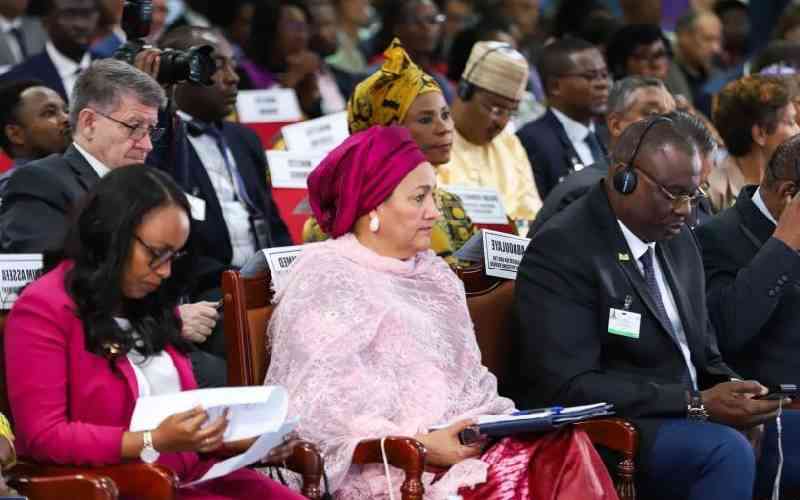Kenyans who expected the International Monetary Fund (IMF) to renew its Sh150 billion standby credit facility following the repealing of the interest rate cap law are in for a major disappointment.
They include President Uhuru Kenyatta who spent plenty of his political capital arm-twisting MPs to stay away from the House to deny it the number of members required to overturn his veto.
Instead of welcoming the president’s gesture, the Washington-based institution is expected to move the goalposts and demand budgetary reforms. These reforms usually target high taxes and cuts on expenditure on social programmes that benefit the most vulnerable members of society.
It does not seem to matter to the IMF that these reforms have, in many instances, led to public protests that have destabilised governments and resulted in human suffering when regimes fall. As far as the Bretton Woods institution is concerned, theory trumps over the practice.
The IMF’s insistence on allowing markets to determine prices, labour and taxation have seen the de-industrialisation of much of Africa and the rest of the developing world in the last 30 years.
This means that neither the World Bank nor IMF has pro-growth policies that can get countries to escape the cycle of poverty that has held much of Africa captive.
Budget deficits
To escape this cycle and demonstrate the bankruptcy of these entities, Kenya has to retrace its steps and embrace policies that grow the economy.
It should not be stymied in efforts to reduce budget deficits as these might be in the short-term.
This would require dusting off some of the policies that were briefly pursued in the 1960s and early ’70s before the country surrendered its monetary independence to Washington.
This would also entail reducing, if not eradicating vices that opened the door for Washington, its orthodoxy and scholars to appoint themselves as truth-bearers.
The war against graft, nepotism, and tribalism should be fought hard. If law enforcement agencies are part of the problem, deal with them firmly.
The president should borrow a leaf from leaders who turned their countries’ fortunes in one generation such as those of Singapore and South Korea.
He should, however, note that no president can do this when the economy requires Washington support.
Stay informed. Subscribe to our newsletter
 The Standard Group Plc is a
multi-media organization with investments in media platforms spanning newspaper
print operations, television, radio broadcasting, digital and online services. The
Standard Group is recognized as a leading multi-media house in Kenya with a key
influence in matters of national and international interest.
The Standard Group Plc is a
multi-media organization with investments in media platforms spanning newspaper
print operations, television, radio broadcasting, digital and online services. The
Standard Group is recognized as a leading multi-media house in Kenya with a key
influence in matters of national and international interest.
 The Standard Group Plc is a
multi-media organization with investments in media platforms spanning newspaper
print operations, television, radio broadcasting, digital and online services. The
Standard Group is recognized as a leading multi-media house in Kenya with a key
influence in matters of national and international interest.
The Standard Group Plc is a
multi-media organization with investments in media platforms spanning newspaper
print operations, television, radio broadcasting, digital and online services. The
Standard Group is recognized as a leading multi-media house in Kenya with a key
influence in matters of national and international interest.








